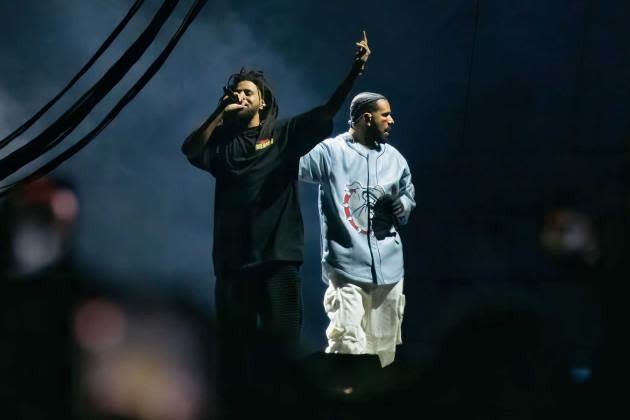Music award shows have become a major part of the music industry and culture in the past few decades. These shows provide recognition and validation to artists, as well as the opportunity to increase exposure, sales, and overall career success. However, the impact of music award shows on the industry is a topic of controversy and debate.
Let’s discuss the history of music award shows, the importance of these shows, the voting process, controversies surrounding various award shows, and the impact of winning or not winning an award.
The Importance of Music Award Shows
Music award shows are important for several reasons. They provide recognition and validation to artists, which can increase their exposure, sales, and overall career success.
Winning an award can also increase an artist’s bargaining power, which can lead to better contracts and more lucrative opportunities. Additionally, music award shows can impact the music industry as a whole by influencing music streaming and sales.
When an artist wins an award, their music often sees a boost in sales and streams, which can lead to increased revenue for record labels and streaming services.
The Academy and the Voting Process
Most music award shows are overseen by an academy, which is made up of industry professionals and experts. The academy is responsible for selecting the nominees and winners for each category. The voting process varies from show to show, but it typically involves a combination of the popular vote and industry vote.
For example, the Grammy Awards use a combination of the popular vote and industry vote, with each category having its own voting committee made up of industry experts. The voting committees select the nominees, and then the entire academy votes on the winners.
Critics of the voting process argue that it can be biased and unfair. Some have accused the academy of favoring certain artists or genres over others. Others have criticized the fact that the voting process is not transparent and that it is difficult to understand how the winners are selected.
The Grammy Awards
The Grammy Awards are perhaps the most well-known and prestigious music award show. The first Grammy Awards were held in 1959, and they have been held annually ever since. The Grammy Awards are overseen by the Recording Academy, which is made up of industry professionals and experts.
The Grammy Awards are known for their many categories, which cover a wide range of genres and sub-genres. Some of the most well-known categories include Record of the Year, Album of the Year, Song of the Year, and Best New Artist.
Despite their prestige, the Grammy Awards have faced several controversies over the years. In 2019, the Recording Academy faced criticism for its lack of diversity among its nominees.
Many artists and fans felt that the academy favored mainstream, commercial artists over more niche and independent artists. Additionally, some critics have accused the Grammy Awards of being out of touch with the current music scene and not accurately representing the best of the year’s music.
The controversy surrounding the 2019 Grammys highlights the ongoing criticism of music award shows. The show was marred by controversy after the Recording Academy’s former CEO, Deborah Dugan, alleged misconduct and corruption within the organization. She claimed that the voting process for the Grammys was rigged, with nominations and awards being influenced by personal relationships and financial interests.
Dugan’s allegations sparked a wider conversation about the transparency and fairness of music award shows. Some critics argued that the Grammy Awards had lost touch with the public and no longer accurately reflected the changing tastes and trends of the music industry. Others pointed out that the awards had become too commercialized, with major labels and industry insiders exerting too much influence over the nomination and voting process.
The controversy led to changes within the Recording Academy, including the appointment of a new CEO and the establishment of a task force to review the organization’s policies and procedures. However, it also highlighted the ongoing tension between music award shows and the broader music industry, as well as the need for greater transparency and accountability in the selection process.

Musician Jon Batiste at the 64th annual Grammy Award
Despite the controversy, the 2020 Grammys saw several historic moments, including Billie Eilish becoming the youngest artist to win the “big four” awards (Album of the Year, Record of the Year, Song of the Year, and Best New Artist) in a single year. The show also featured memorable performances from artists like Lizzo, Lil Nas X, and Tyler, the Creator.
Overall, the controversy surrounding the 2019 Grammys underscores the ongoing criticism and scrutiny faced by music award shows. While these shows can provide validation and recognition for artists, they also face challenges in accurately representing the best music of the year and avoiding bias and commercial influence.
As the music industry continues to evolve and change, it will be important for music award shows to adapt and evolve as well, in order to remain relevant and reflective of the broader music landscape.
The Billboard Music Awards
The Billboard Music Awards are another major music award show. The first Billboard Music Awards were held in 1990, and they have been held annually ever since. The Billboard Music Awards are overseen by Billboard, a music industry publication.
The Billboard Music Awards focus on chart performance and sales, with categories such as Top Artist, Top Billboard 200 Album, and Top Hot 100 Song. The winners are determined based on chart performance and sales data.
The Billboard Music Awards have faced controversies over the years as well. In 2014, the award show faced criticism for its decision to give a Lifetime Achievement Award to pop star Jennifer Lopez, who many felt had not yet achieved enough to warrant such an honor.
Additionally, some critics have accused the Billboard Music Awards of being too focused on commercial success and not accurately representing the best music of the year.
The American Music Awards
The American Music Awards are another major music award show. The first American Music Awards were held in 1974, and they have been held annually ever since. The American Music Awards are overseen by the Recording Industry Association of America (RIAA).
The American Music Awards focus on popular music, with categories such as Artist of the Year, Favorite Pop/Rock Album, and Favorite Country Song. The winners are determined based on a combination of the popular vote and industry vote.
Like the other music award shows, the American Music Awards have faced controversies over the years. In 2019, the award show faced criticism for its lack of diversity among its nominees, similar to the criticisms faced by the Grammy Awards. Additionally, some critics have accused the American Music Awards of being too focused on commercial success and not accurately representing the best music of the year.
The Impact of Winning an Award
Winning a music award can have a significant impact on an artist’s career. It can provide validation and recognition, which can increase exposure, sales, and overall success. Winning an award can also increase an artist’s bargaining power, which can lead to better contracts and more lucrative opportunities.
There have been many examples of artists who have benefitted from winning an award. For example, in 2019, rapper Cardi B won the Grammy Award for Best Rap Album, which helped to solidify her place as one of the most successful and influential rappers of her generation.
Similarly, in 2020, singer-songwriter Billie Eilish won multiple Grammy Awards, including Album of the Year, which helped to cement her status as one of the most exciting and innovative artists in the music industry.
However, winning an award is not a guarantee of success. There have been many examples of artists who have not benefitted from winning an award. For example, in 2018, rapper Kendrick Lamar won the Pulitzer Prize for Music for his album DAMN., but the album did not see a significant increase in sales or streams following the win. Similarly, in 2020, singer Lizzo won multiple Grammy Awards, but her music did not see a significant increase in sales or streams following the wins.
One way in which music award shows have adapted to the rise of streaming and social media is by utilizing these platforms to reach a wider audience and engage with fans. For example, in 2020, the MTV Video Music Awards were held virtually due to the COVID-19 pandemic, and the show utilized social media and digital platforms to create a more interactive and engaging experience for fans.
The show featured performances from various locations across New York City, with some artists performing on rooftops and in public spaces, while others performed from remote locations. The show also featured a series of pre-recorded and live-streamed performances, as well as interactive elements like live chat rooms and virtual fan walls.
The virtual format allowed the show to reach a wider audience than ever before, with fans from around the world tuning in to watch their favorite artists perform. It also allowed for more creative and innovative performances, with artists taking advantage of the unique locations and settings to create memorable moments.
Other music award shows have also utilized streaming and social media to engage with fans and create a more interactive experience. The American Music Awards, for example, have partnered with YouTube to offer a live stream of the show, as well as pre-show and post-show content. The show also features interactive elements like fan polls and real-time Twitter feeds, allowing fans to engage with the show and vote for their favorite artists.
Overall, the use of streaming and social media by music award shows has allowed these shows to reach a wider audience and engage with fans in new and innovative ways. As these platforms continue to evolve and change, it will be interesting to see how music award shows continue to adapt and evolve in order to remain relevant and reflective of the broader music landscape.
The Impact of Not Winning an Award
Not winning a music award can also have a significant impact on an artist’s career. It can lead to feelings of disappointment and frustration, and it can also impact an artist’s bargaining power and overall success.
There have been many examples of artists who have suffered from not winning an award. For example, in 2019, rapper Travis Scott was not nominated for any Grammy Awards, despite the success of his album Astroworld. Many fans and critics felt that he was snubbed by the academy, and some argued that his lack of recognition could impact his career in the long term.
However, not winning an award is not always a death sentence for an artist’s career. There have been many examples of artists who have not suffered from not winning an award. For example, in 2019, rapper J. Cole was not nominated for any Grammy Awards, but his album KOD still saw significant success and critical acclaim.

J Cole performing alongside Drake at the 2023 Dreamville Festival
The impact of not winning an award can also have a significant impact on an artist’s career and reputation. While being nominated for an award is certainly an honor, not winning can be a blow to an artist’s confidence and credibility.
One example of an artist who has faced criticism for not winning awards is Nicki Minaj. Despite being one of the most successful and influential artists of the past decade, Minaj has yet to win a Grammy Award, leading to frustration and disappointment among her fans and fellow artists. In 2020, Minaj tweeted her frustration with the Grammy Awards, claiming that the show had a history of overlooking and undervaluing Black artists.
Similarly, in hip-hop culture, there has been a long-standing debate about the value and significance of awards, with many artists and fans arguing that the true measure of an artist’s success and impact lies in their influence and cultural relevance, rather than in their award wins or nominations.
However, it is important to note that not winning an award does not necessarily mean that an artist’s work is not valuable or impactful. There are many examples of artists who have achieved significant success and critical acclaim without winning major awards. Kendrick Lamar, for example, has been widely recognized as one of the most important and influential hip-hop artists of the past decade, despite only winning a few Grammy Awards.
Ultimately, while winning awards can certainly boost an artist’s profile and career, it is not the only measure of their success or worth as an artist. The impact of not winning an award can be significant, but it is important for artists to remember that their value and impact lie in their artistry and cultural relevance, rather than in their award wins or nominations.
The Future of Music Award Shows
The future of music award shows is uncertain, but there are several trends and potential changes that we can expect to see in the years to come. One trend is the increasing focus on diversity and inclusion. In recent years, there has been a push for music award shows to be more representative of the diverse range of artists and genres in the music industry. This has led to changes in the nomination and voting process, as well as the creation of new categories to recognize underrepresented groups.
Another trend is the increasing impact of technology on music award shows. With the rise of streaming and social media, music award shows are increasingly utilizing these platforms to reach a wider audience and engage with fans. For example, in 2020, the MTV Video Music Awards were held virtually due to the COVID-19 pandemic, and the show utilized social media and digital platforms to create a more interactive and engaging experience for fans.
Another potential change we could see in the future is the devaluation of music award shows. As more artists and fans question the relevance and accuracy of these shows, we could see a shift away from award shows as the primary measure of success in the music industry. Instead, artists may focus more on streaming numbers, social media engagement, and live performances as indicators of success and popularity.
Conclusion
Music award shows have played an important role in the music industry for decades, providing recognition and validation to artists and helping to shape the public perception of popular music. However, these shows have also faced criticism and controversy over the years, with many questioning their relevance and accuracy in representing the best music of the year.
Despite these criticisms, music award shows continue to have a significant impact on the music industry and the careers of artists. Winning an award can provide validation and recognition, while not winning can lead to disappointment and frustration. As the music industry continues to evolve and change, it will be interesting to see how music award shows adapt and evolve to reflect these changes.
Gain more music industry knowledge here






